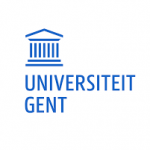Sustainable Urban Water for Human Health and Well-Being

About the session:
This session provides a better understanding of the role of health-related multi-sectoral water management in strengthening the economic and environmental resilience of societies, based on scientific research and hands-on project experiences. It will facilitate dialogue between stakeholders towards improving water-related health and well-being in urban areas.
Improving urban water quality and quantity is necessary for physical and mental health, including waterborne disease prevention through vector control, maintaining physical and mental health building through generating necessary recreational ecosystem services provision, and reducing effects of climate change on humans through regulating microclimate and minimizing heat stress, among others. Thus, water quality could be an indication of Quality of Life.
The session will engage practitioners from public and private organisations, academia, and youth representatives to discuss 1) how to better understand the role of health-related multi-sectoral water management in strengthening the economic and environmental resilience of societies, 2) what challenges and barriers should be overcome to accelerate urban water quality, 3) how entrepreneurship and youth participation in it could promote innovative water management for health, 4) how differential impacts of water quality may drive reasonably different but gender-appropriate WASH, health, and socioeconomic interventions to enhance well-being and minimize the inequalities, 5) how climate change-related water insecurity could impact mental health and psychological well-being, and 6) how to develop a system to address the vulnerabilities and inequalities.
The session provides introductory talks to provide an overview, followed by a panel discussion and a summary to report on solutions and practices.
20 August 2023
10:00 - 11:00 CEST
For further information, please click here.
Partners / Co-convenors:
- United Nations University Institute on Comparative Regional Integration Studies
- United Nations University Institute for Environment and Human Security
- United Nations University Institute for Integrated Management of Material Fluxes and of Resources
- United Nations University Institute for the Advanced Study of Sustainability
- United Nations University Maastricht Economic and Social Research Institute on Innovation and Technology
- United Nations University Institute for Water, Environment and Health
- University of Toyama, Japan
- Stockholm Resilience Centre
- The University of Tokyo, Japan
Upcoming Events
Similar Events
No events found.



